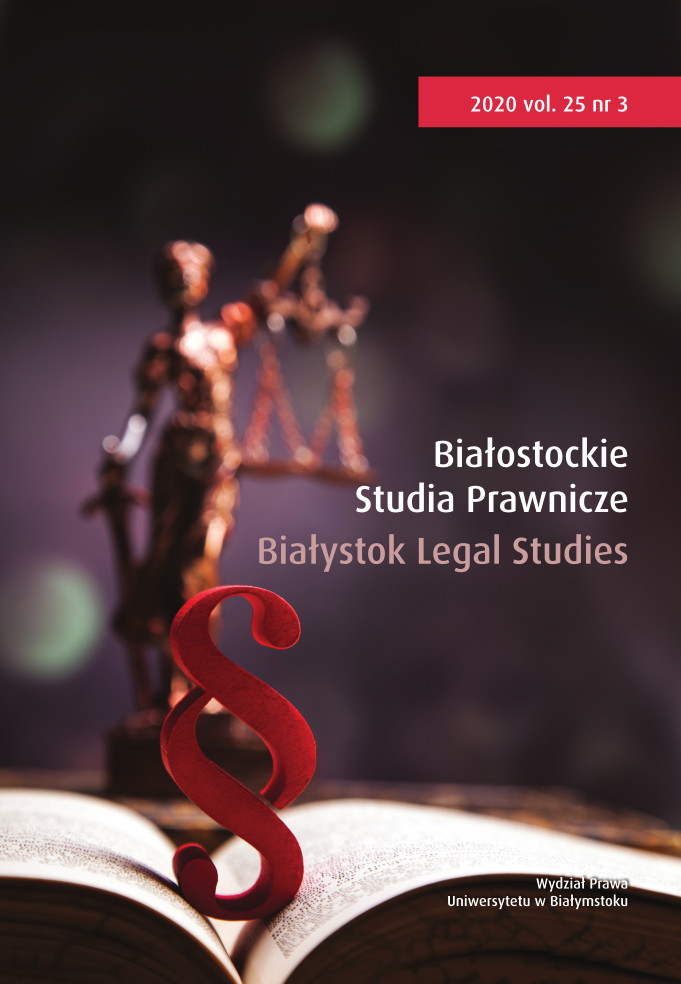Overview of the Trade Relations Between the European Community/Union and the United States at the Threshold of Globalization and Post -globalization Era
Słowa kluczowe:
American unilateralism, European Community/Union, the Trans -Atlantic Free Trade Agreement, globalization, regionalization, strategic trade, the General Agreement on Tariff and Trade (GATT), the World Trade Organization (WTO), The Chicken War, Banana War, principle of parallelism, Byrd’s Amendment, Carousel Procedure, zeroingAbstrakt
The main goal of this article is to present to the European reader the implications of the unstable relationships between the United States and an integrated Europe. The article focuses on the trade relations between the US and Europe in the globalization era. It explains the meaning of some basic terms used by trade experts, such as globalization, regionalization, glocalization, and strategic trade. The author also tries to explore the reasons for the recent crisis of global trade. The main part of the paper reviews the major disputes between these two regions which resulted in postponing of the negotiations of the Trans -Atlantic Free Trade Agreement. As we have observed in the introduction of the article, the relationships between the European Union and the United States have always been complicated and the article presents the main reasons for these disagreements. In a time of renewed Trans -Atlantic negotiations, pro -American sentiments in Europe grew stronger, and European experts on trade and politics emphasized that the US significantly increased support for the European Deterrence Initiative (EDI). Still, with comments repeated by President Trump many times that “Europe needs its own army”, the European media began warning the readers that the crisis in US -EU relations may soon return.Bibliografia
P. Barkham, European Union. The banana wars explained, “The Guardian”, 03.05.1999.
A. Chayes, T. Erhlich, A. Lowenfeld, “International Legal Process”, Vol II, 1968.
T.M. Cooley, The General Principles of the Constitutional Law in the United States of America, Boston, 1891.
A.V. Deardorff, R.M. Stern, M.N. Greene, The Implications of Alternative Trade Strategies for the United States, [in:] The New International Economic Order. A U.S. Response, Nowy Jork 1979.10.1007/978-1-349-05466-4_3
D. Ikenson, Ending the “Chicken War”. The Case for Abolishing the 25 Percent Truck Tariff, June 18, 2003, Center for Trade Policy Studies.
D. Ikenson, Byrdening Relations: U.S. Trade Policies, Washington, D.C.: Cato Institute, 2003.
J.H. Jackson, World Trade and the Law of the GATT, Indianapolis, 1968.
J. Larik, Brexit and the Future of Transatlantic Relations Brexit Institute, 04, 2018.
S. Lester and D. Ikenson, Core Principles for a U.S.-UK Free Trade Agreement, Cato Institute, 30.01.2020.
R.R. Ludwikowski, Limits of Universalism: Protection of Human Rights in Europe and America in Historical and Comparative Perspective,“Politeja”, 2/6/2006.
R.R. Ludwikowski, Handel Międzynarodowy, IV Wyd. C.H. Beck, 2019.
R. Małajny, Trzy Teorie Podzielonej Władzy, 2001.
L. McGee, Cracks in the Trump -Europe relationship are turning into a chasm, 04.06.2020, CNN.
L. Sek, Trade Retaliation: The ‘Carousel’ Approach, Congressional Research Service, 03.05.2002.
J. Smith, The EU -US relationship is in crisis, The German Times, 03.2019.
J. Worland, Trump Wants to Impose Steel Tariffs. It Didn’t Work for Bush, Time, March 1, 2018.



